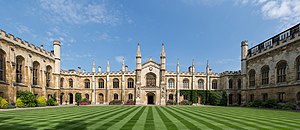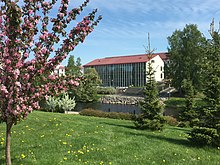Etymology and Historical Context of College
– The word ‘college’ comes from the Latin verb ‘lego, legere, legi, lectum,’ meaning to collect, gather together, pick, with the preposition ‘cum,’ meaning with.
– In ancient Rome, a ‘collegium’ was a body, guild, corporation united in colleagueship.
– A college was a form of corporation or corporate body with its own legal personality.
– In medieval England, there were colleges of priests and modern examples include the Royal College of Surgeons and the College of Arms.
– Eton College, founded in 1440, was created to instruct scholars in the knowledge of letters.
Different Types of Colleges and Higher Education
– The term ‘college’ can refer to a constituent part of a collegiate or federal university.
– It can also refer to a liberal arts college focusing on undergraduate education.
– Some colleges provide specialized training, such as teacher training colleges or art colleges.
– Catholic higher education institutes are privately run by the Catholic Church and may include universities and colleges.
– In the United States, college can sometimes be synonymous with a research university or the undergraduate college within a university.
– Colleges can be a constituent part of a collegiate or federal university.
– Liberal arts colleges are independent institutions focusing on undergraduate education.
– Some universities have a liberal arts division that doesn’t follow a liberal arts model.
– Colleges of further education provide specialized training, such as Belfast Metropolitan College.
– Catholic higher education institutes, including universities and colleges, are privately run by the Catholic Church.
Further Education and Secondary Education
– Sixth form colleges or colleges of further education are educational institutions where students aged 16 to 19 study for advanced school-level qualifications.
– In Singapore and India, this is known as a junior college.
– The municipal government of Paris uses the phrase ‘sixth form college’ as the English name for a lycée.
– In some countries, colleges are referred to as junior colleges.
– College is used in the name of state high schools built since the late 1990s in Western Australia, South Australia, and the Northern Territory.
– In some national education systems, secondary schools may be called colleges.
– In Australia, the term college is applied to private or independent primary and secondary schools.
– Government secondary schools in Victoria are referred to as secondary colleges.
– In New South Wales, some high schools are known as secondary colleges, especially multi-campus schools resulting from mergers.
– In Canada, government-run secondary schools are called collegiates or collegiate institutes, focusing on academic subjects.
College in Different Countries
– College refers to a secondary school for ages 13 to 17 in New Zealand.
– In South Africa, some secondary schools have college in their title, such as St Johns College in Johannesburg.
– In the Netherlands, college is equivalent to HBO (Higher professional education) and focuses on professional training with clear occupational outlook.
– Universities in the Netherlands are scientifically oriented, while colleges are oriented towards practical skills and vocational training.
– Cram-colleges are private schools that specialize in improving children’s marks and have an intensive focus on examination needs.
– In Sri Lanka, college refers to a secondary school, and some exclusive secondary schools follow the English public school model and are named as colleges.
– Central colleges were established in Sri Lanka to educate the rural masses, and many schools established after independence have been named as colleges.
– Colleges in Sri Lanka signify education above the 5th standard.
College as a Formal Group or Institution
– College can also refer to any formal group of colleagues set up under statute or regulation.
– Examples include electoral college, College of Arms, college of canons, and College of Cardinals.
– Professional associations, such as the Royal College of Nursing, fall under the category of collegiate bodies.
– In the United States, there are various professional colleges like the American College of Physicians and the American College of Surgeons.
– Australia has the Royal Australian College as an example of a collegiate body in the medical field. Source: https://en.wikipedia.org/wiki/College
A college (Latin: collegium) is an educational institution or a constituent part of one. A college may be a degree-awarding tertiary educational institution, a part of a collegiate or federal university, an institution offering vocational education, a further education institution, or a secondary school.



In most of the world, a college may be a high school or secondary school, a college of further education, a training institution that awards trade qualifications, a higher-education provider that does not have university status (often without its own degree-awarding powers), or a constituent part of a university. In the United States, a college may offer undergraduate programs – either as an independent institution or as the undergraduate program of a university – or it may be a residential college of a university or a community college, referring to (primarily public) higher education institutions that aim to provide affordable and accessible education, usually limited to two-year associate degrees. The word is generally also used as a synonym for a university in the US. Colleges in countries such as France, Belgium, and Switzerland provide secondary education.
